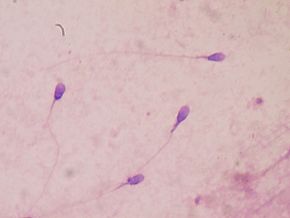 Scientists have long known about some factors linked to a higher risk of developing multiple sclerosis (MS).These include low levels of sunlight exposure, low vitamin D blood levels, smoking, and being infected with the Epstein Barr virus in adolescence and adulthood (infectious mononucleosis). Recent research has identified another risk factor - exposure to mixtures of PFAS and PCBs.
Scientists have long known about some factors linked to a higher risk of developing multiple sclerosis (MS).These include low levels of sunlight exposure, low vitamin D blood levels, smoking, and being infected with the Epstein Barr virus in adolescence and adulthood (infectious mononucleosis). Recent research has identified another risk factor - exposure to mixtures of PFAS and PCBs.
Multiple sclerosis (MS) is an autoimmune disorder in which the immune system attacks myelin in the central nervous system, including the brain.
Researchers in Sweden found that people exposed to both PFAS and PCBs, resulting in higher levels of these chemicals in the blood, are at higher risk for MS. And the higher the levels of both in the blood, the higher the risk. The research was important in that it showed the need to look at mixtures of chemicals people are exposed to (real life!), not just chemicals in isolation.
PFAS (per- and polyfluorinated substances) are commonly known as "forever chemicals" due to their buildup and persistence in people and the environment. They are of great concern because they are endocrine disruptors, have harmful health effects (e.g., cancer, kidney disease, fertility problems), and unfortunately are found in many products that people use daily (e.g., nonstick pots, nonstick finishes). In the study, PCB exposure was primarily from foods, especially Baltic Sea fish, and water.
Bottom line: We can't avoid all exposures to environmental toxins, but we can lower our exposures, for example, by avoiding nonstick cookware. [More tips on avoiding harmful chemicals.]
From Medical Xpress: Exposure to PFAS and PCBs linked to higher odds of multiple sclerosis
People who have been exposed to both PFAS and PCBs are more likely to be diagnosed with multiple sclerosis (MS). These new research findings are based on analyses of blood samples from more than 1,800 individuals in Sweden, one of the most comprehensive studies to date on the influence of chemical environmental exposure on the development of MS. ...continue reading "Link Between Forever Chemicals and Multiple Sclerosis"


 Well.... of course, applying this sludge across farms has now resulted in persistent contamination of both the soil and water at those farms, but also in the animals being raised on those farms. Estimates are up to a
Well.... of course, applying this sludge across farms has now resulted in persistent contamination of both the soil and water at those farms, but also in the animals being raised on those farms. Estimates are up to a 



 Chemicals known as "forever chemicals" or PFAS have been in the news a lot recently. This is because PFAS (per- and polyfluoroalkyl substances) are in so many products that we all use, yet research is showing more and more health harms from them. Including to pregnant women and developing babies.
Chemicals known as "forever chemicals" or PFAS have been in the news a lot recently. This is because PFAS (per- and polyfluoroalkyl substances) are in so many products that we all use, yet research is showing more and more health harms from them. Including to pregnant women and developing babies. Unfortunately, unprocessed and minimally processed foods are more expensive than ultra-processed foods. So it wasn't surprising that socioeconomic levels (including income levels) made a difference - the lower the household income, the greater the average ultra-processed food intake.
Unfortunately, unprocessed and minimally processed foods are more expensive than ultra-processed foods. So it wasn't surprising that socioeconomic levels (including income levels) made a difference - the lower the household income, the greater the average ultra-processed food intake.

 Do you know what chemicals you're exposed to on a daily basis? A recent study found that women with cancers of the breast, uterus, skin (melanoma), or ovaries had significantly higher levels of certain endocrine disrupting chemicals in their bodies than women without any of those cancers.
Do you know what chemicals you're exposed to on a daily basis? A recent study found that women with cancers of the breast, uterus, skin (melanoma), or ovaries had significantly higher levels of certain endocrine disrupting chemicals in their bodies than women without any of those cancers.